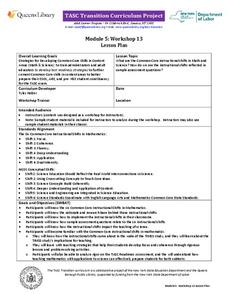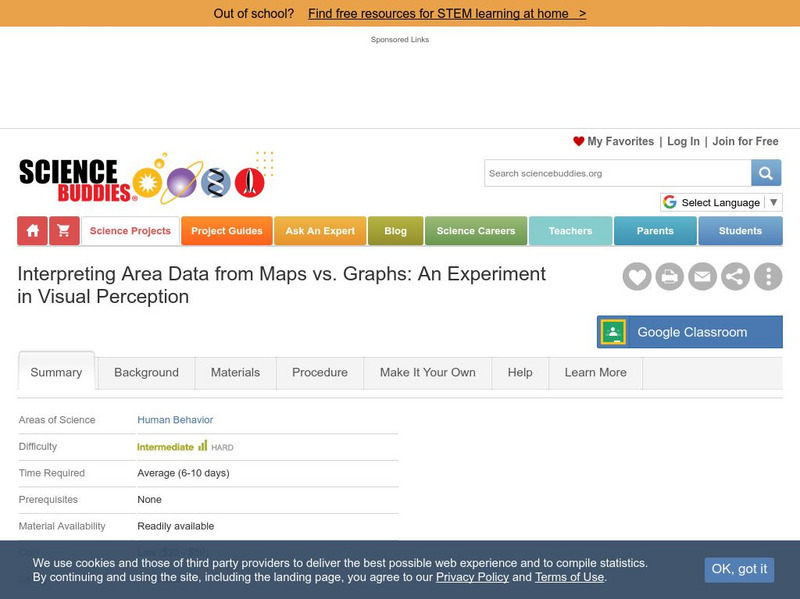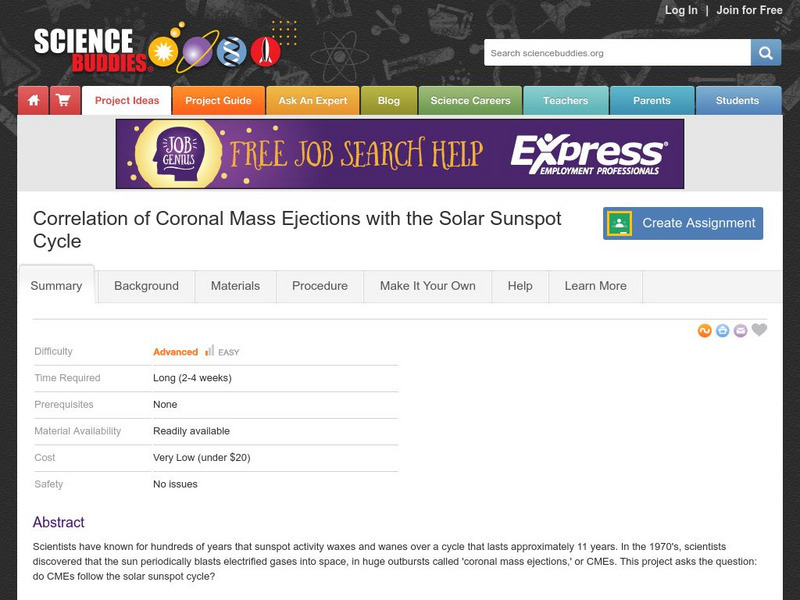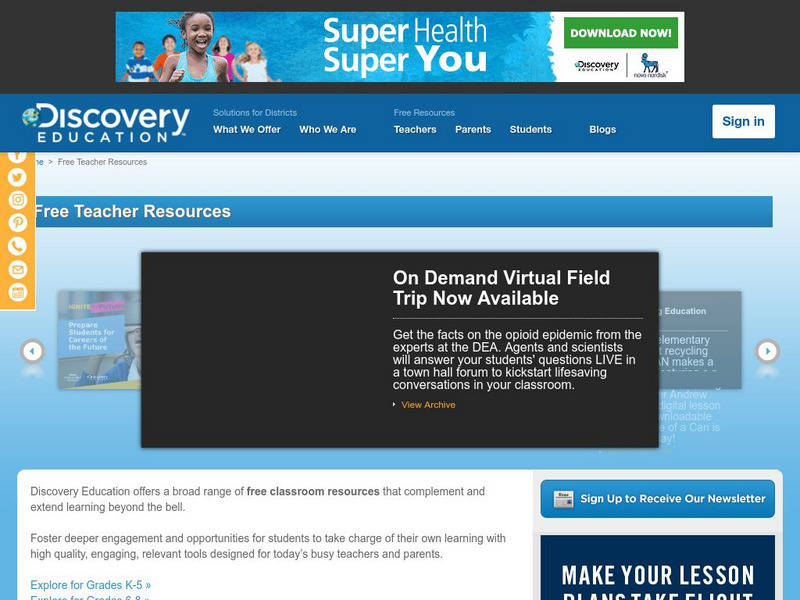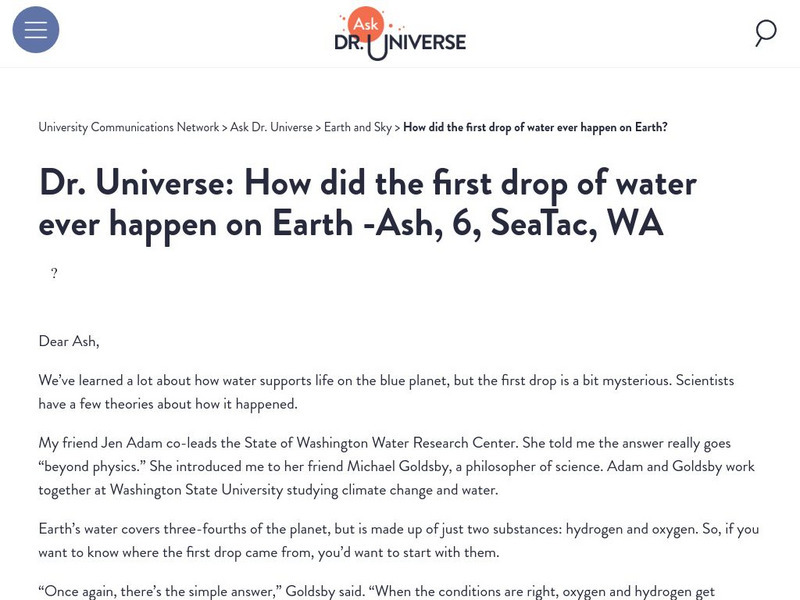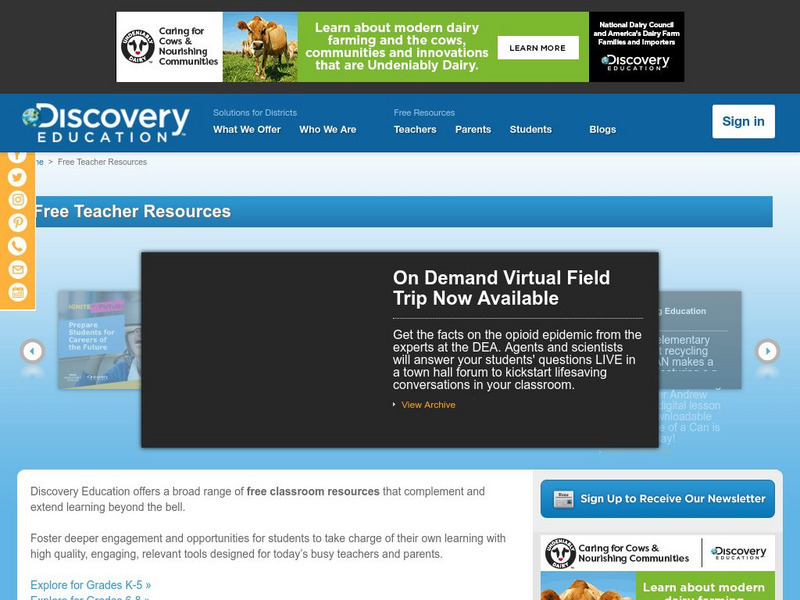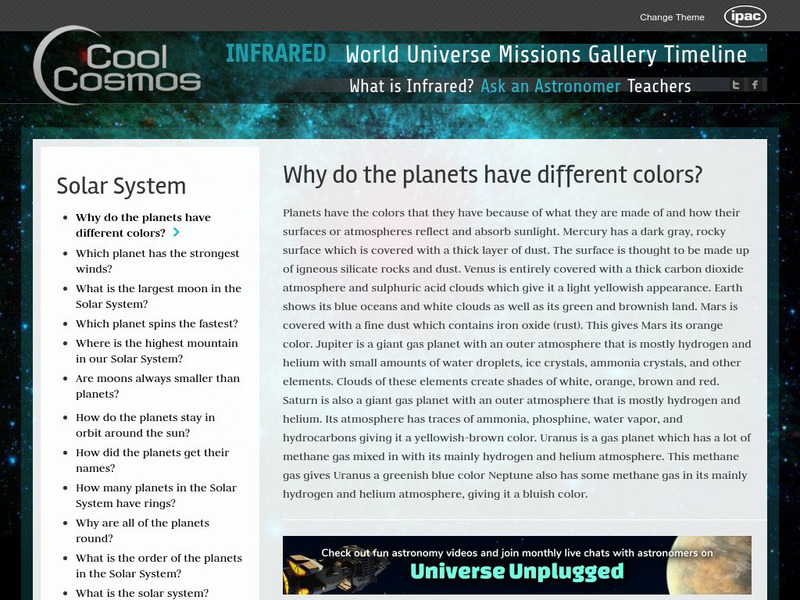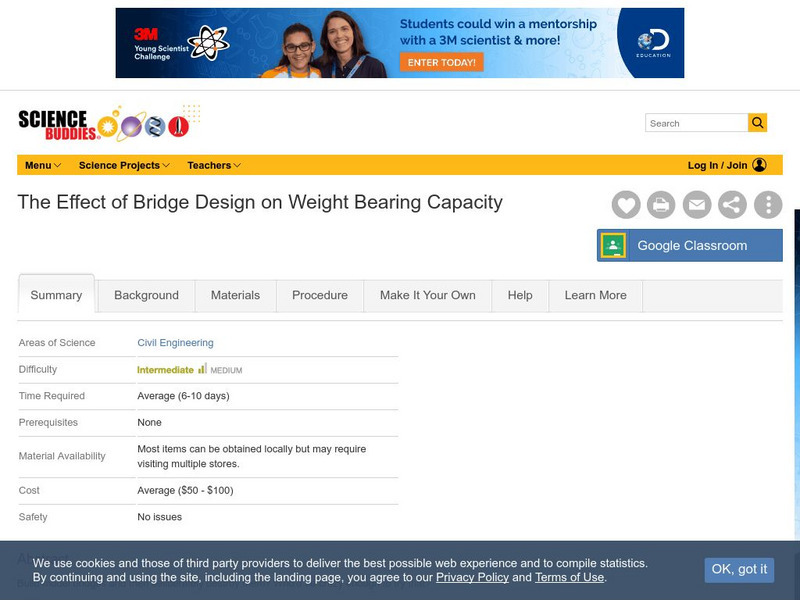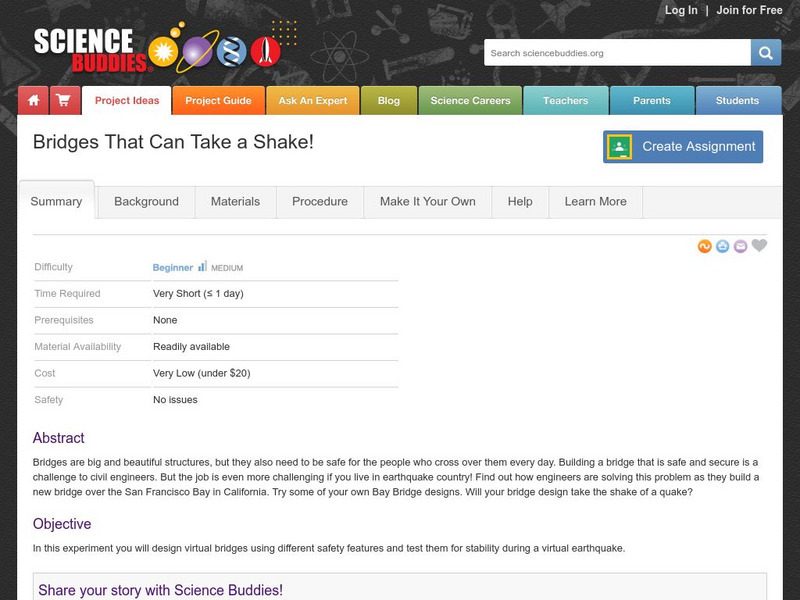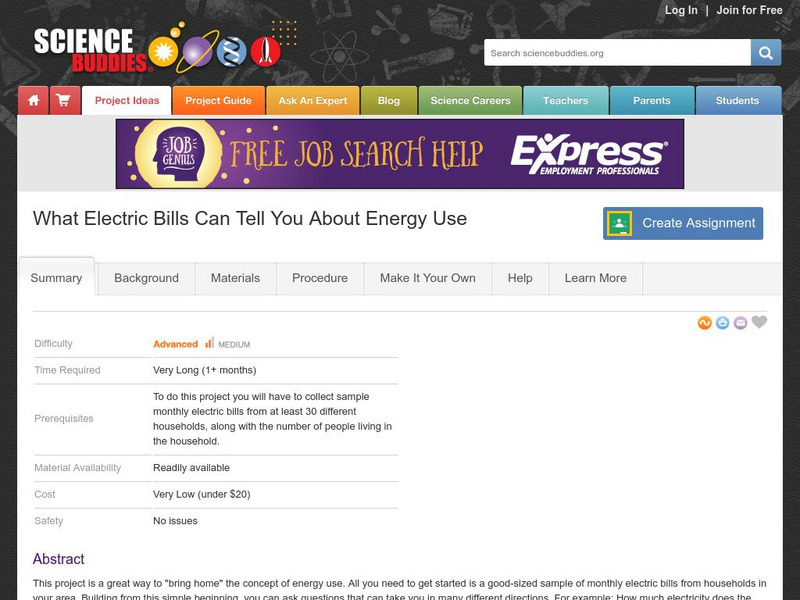New York State Education Department
TASC Transition Curriculum: Workshop 13
The six instructional shifts in this workshop definitely move math and science teachers' understanding of instruction. The workshop, 13th out of a series of 15, asks participants to examine sample tests and to look at how the six...
EngageNY
TASC Transition Curriculum: Workshop 8
Lights, camera, action! Math educators consider how to improve their instruction by examining a model of the five-practice problem-solving model involving a movie theater. Participants examine cognitive demand in relation to problem...
Science Buddies
Science Buddies: Ask an Expert Answers to Your Science Questions
This section of Science Buddies focuses on 'Ask an Expert'. Both teachers and students can go to find answers to science questions that they have been unable to find. Divided into grade levels with an archive of past questions. Free to...
Science Buddies
Science Buddies: Interpreting Area Data From Maps vs. Graphs
Graphical methods of data presentation are a key feature of scientific communication. This project asks the question, "What's the best way to compare the land area of states: a map or a bar graph?" You'll be measuring performance on two...
Science Buddies
Science Buddies: Correlation of Coronal Mass Ejections With Solar Sunspot Cycle
Scientists have known for hundreds of years that sunspot activity waxes and wanes over a cycle that lasts approximately 11 years. In the 1970's, scientists discovered that the sun periodically blasts electrified gases into space, in huge...
Discovery Education
Discovery Education: Science Fair Central: Choose a Science Fair Project Idea
Great science fair project ideas! Learn how to ask a testable question and choose from elementary, middle school, or high school science fair project ideas. View examples of testable questions, and see what is changed, what stays the...
Massachusetts Institute of Technology
Mit: Engineering: Ask an Engineer
This resource is composed of student questions for engineers, and provides information on a variety of scientific topics such as devising science fair projects, planning scientific experiments and getting into a school like MIT for...
Washington State University
Washington State University: Ask Dr. Universe: How Did the First Drop of Water Ever Happen on Earth?
Website addressing earth science questions from students in a letter column format. Here, a student asks about the first drop of water and Dr. Universe attempts to answer.
Library of Congress
Loc: Everyday Mysteries Fun Science Facts
This resource is hosted by the Science and Technology Research Center of the Library of Congress. You are able to search the site to find answers to your science questions. The database of answers is composed of all questions asked of...
Discovery Education
Discovery Education: Science Fair Central: Choose a Project Type Investigation
Discover how to approach a scientific question, and learn eight steps students will perform in doing so. Offers suggestions on how to ask a testable question as well as several examples.
CPALMS
Florida State University Cpalms: Florida Students: Question Quest
Explore the difference between questions that can be answered by science and those that cannot be answered in this tutorial.
United Nations
Unesco: Science Test Questions (In Arabic)
Part of a larger site on math and science education. This page has over thirty-five multiple -choice and short-answer questions for 3rd and 4th grade science. Questions ask students to define terms (e.g., in Physics, Biology) or use...
California Institute of Technology
Cool Cosmos: Ask an Astronomer: Venus
Resource offers the answers to many frequently asked questions about Venus. Kids can click on the user-friendly question links to learn more about this amazing planet.
California Institute of Technology
Cool Cosmos: Ask an Astronomer
Resource compiles a list of most frequently asked questions about Mercury. Each question is linked to an astronomer's answer. Kids can explore many aspects of this wonderful planet.
California Institute of Technology
Cool Cosmos: Ask an Astronomer for Kids: Solar System
Resource presents information about the solar system through a list of most frequently asked questions. Click on each question and be transported to a wealth of knowledge about our solar system and the planets within it.
NASA
Nasa: Image Science Center: Ask the Space Scientist
A NASA scientist, Dr. Sten Odenwald, answers many students' questions. Topics include planets, galaxies, black holes, the origin of the universe, and common misconceptions about space.
Science Buddies
Science Buddies: The Effect of Bridge Design on Weight Bearing Capacity
This Science Buddies project asks that you identify different kinds of bridges, discover why they are built as they are, and then build three different bridges of your own out of balsa wood. See which one you think can bear the heaviest...
Science Buddies
Science Buddies: Bridges That Can Take a Shake!
Building a bridge in San Francisco has to take into account the possibilites of earthquakes. This Science Buddies science project asks that you use different virtual bridge designs to withstand virtual earthquakes. The Science Buddies...
Science Buddies
Science Buddies: Predators and Prey: How Do Cats Respond to Bird Sound
A science fair project that ask whether cats respond to familiar bird sounds more readily that bird sounds in general. The Science Buddies project ideas are set up consistently beginning with an abstract, objective, and introduction,...
California Institute of Technology
Cool Cosmos: Ask an Astronomer: Comets
Resource provides easy to understand information about comets. Click on the frequently asked question link to find out more about these mysterious celestial bodies.
Science Buddies
Science Buddies: What Is Home Sweet Home to a Bug?
If you had to choose between having your favorite dessert, going to a movie, or spending the night at a friend's house, which would you choose? This project shows you how you can "ask" a sowbug (or pill bug) a similar question in order...
Science Buddies
Science Buddies: What Electric Bills Can Tell You About Energy Use
This project is a great way to "bring home" the concept of energy use. All you need to get started is a good-sized sample of monthly electric bills from households in your area. Building from this simple beginning, you can ask questions...
California Institute of Technology
Cool Cosmos: Ask an Astronomer: Neptune
Resource provides a deeper look at the planet Neptune. Just click on the frequently asked question link and dive into knowledge.
California Institute of Technology
Cool Cosmos: Ask an Astronomer: Pluto
Visit this site and learn more about Pluto. Provides the answers to kids' most frequently asked questions.
